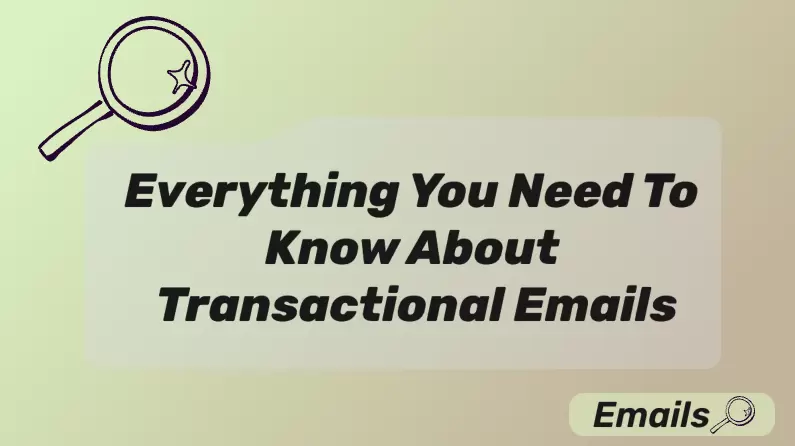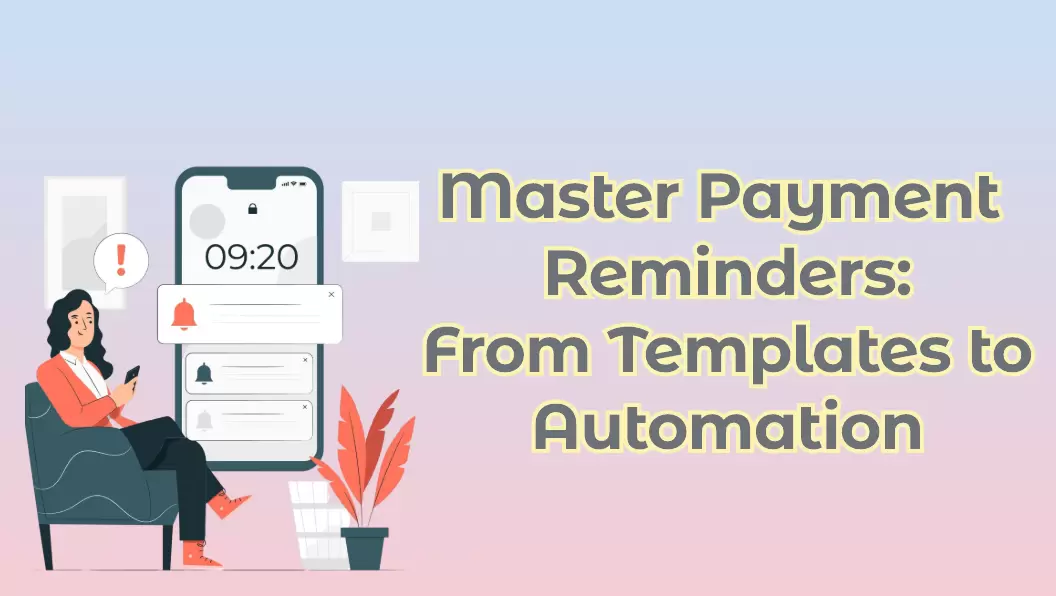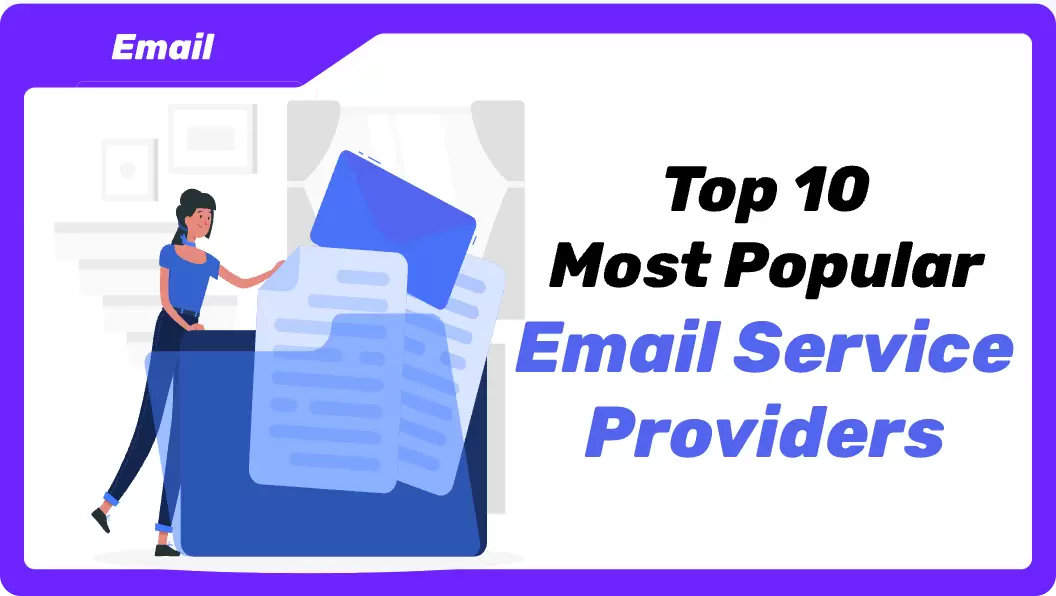Engaging customers is the key to building a successful and sustainable business. Using customer engagement software simplifies this process by helping you connect, engage, and retain customers.
But why does engagement matter so much? Consider these statistics:
Why does engagement matter so much? Consider these facts:
- Acquiring a new customer costs 5-25 times more than retaining an existing one.
- A 5% drop in churn can increase profits by 25% to 95%.
- 44% of loyalty program members leave due to poor personalization.
That's why modern customer engagement platforms are necessary for proactive communication, personalized marketing campaigns, and automation.
This article examines the core working of the modern customer engagement platform and compares the top available options to help you choose the right tool.
Understanding the Modern Customer Engagement Platform
Let's first understand the basics of a modern customer engagement platform:
Core Definition of a Customer Engagement Platform
A customer engagement software is a tool that helps businesses develop strong relationships with their customers. These tools work by centralizing communication across multiple channels, including email, chat, SMS, and social media. It ultimately helps a business in giving fast responses and staying consistent.
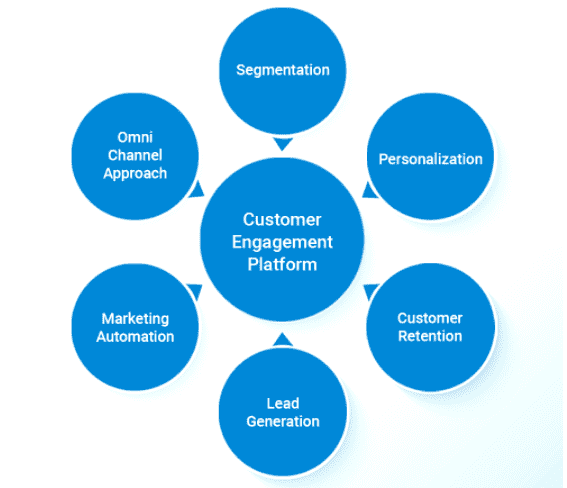
Source: Revechat
Keep in mind that modern customer engagement platforms are much more than just messaging tools. Instead, they support customer engagement via advanced features like automation, AI-powered analytics, customer journey tracking, customer segmentation, and personalization.
Key Differences from Traditional Tools
The following table summarizes the key differences between the modern customer engagement solutions and traditional tools:
| Aspect | Traditional Customer Tools | Modern Customer Engagement Platform |
|---|---|---|
| Data Management | Data is stored in silos across different systems | Unified Customer Data Platform (CDP) to consolidate all interactions |
| Customer View | Fragmented view with teams seeing only part of the customer journey. | 360° unified view of customer behavior, preferences, and lifecycle stage. |
| Engagement Approach | Reactive approach with responses after customers take an action. | Proactive in terms of anticipating needs and triggering engagement automatically. |
| Channel Coverage | Focused on single channels like email or chat. | Omnichannel |
| Automation | Limited or manual workflows. | Advanced AI-driven automation to handle sophisticated workflows |
| Personalization | Generic messaging | Supports real-time personalization based on customer data |
| Integration | Typically hard to integrate with other systems | Quick API and SDK integrations |
| User Experience | Complex interfaces | Intuitive interfaces with drag-and-drop journey builders |
Strategic Need for Customer Engagement Management Software
The following are the key reasons why every business needs to implement a powerful customer engagement software:
- Retention is better than acquisition: Customer acquisition costs are increasing in every other industry, so businesses need to focus on retention and re-engagement of customers.
- Improve customer experience: Customers want a personalized and reliable experience. Hence, better engagement means more users and better brand perception.
- Benefit from collected data: Businesses often collect a lot of data in the form of customer interactions, but they don't have a unified platform to act on it. Using software for customer engagement helps in turning data into action.
- Ensure scalability and efficiency: Engagement automation and journey orchestration are useful to minimize manual effort and bring scalability and efficiency into your customer engagement workflows.
Overall, using an omnichannel customer engagement software is the key for every business to enjoy sustainable growth, better brand loyalty, and greater efficiency.
Core Features of An Omnichannel Customer Engagement Software
A lot of customer engagement software companies have emerged in the last decade, due to which a wide range of customer engagement solutions are available with varying features and goals.
But the following are the core functional modules of an omnichannel customer engagement software that make it the perfect platform to understand, engage, and retain your customers:
1. Omni-channel Communication
Interacting with your customers via multiple channels is the very core function of a customer engagement management software. That is why these platforms help you engage your customers via email, SMS, WhatsApp, push notifications, and live chatbots, from the same unified dashboard. This feature is the key to maintaining consistent communication and customer engagement.
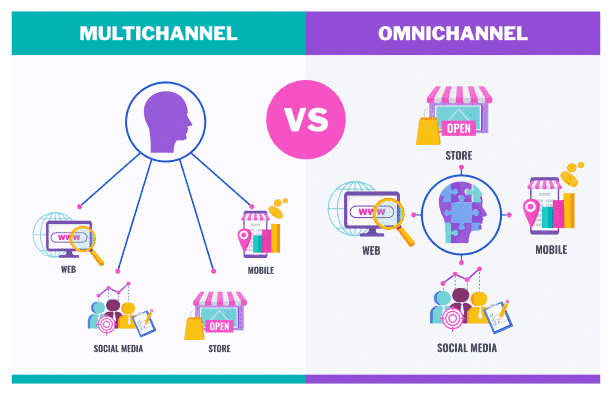
Source: Webkul
2. Customer Data Platform/Unified Customer Profile
Think of the Customer Data Platform (CDP) as a subpart of a customer engagement platform. It collects and combines data from different sources, such as payment history, customer support interactions, and overall user behavior, to create an easy-to-understand customer profile. It is useful to understand your target audience more closely and personalize your marketing campaigns accordingly.
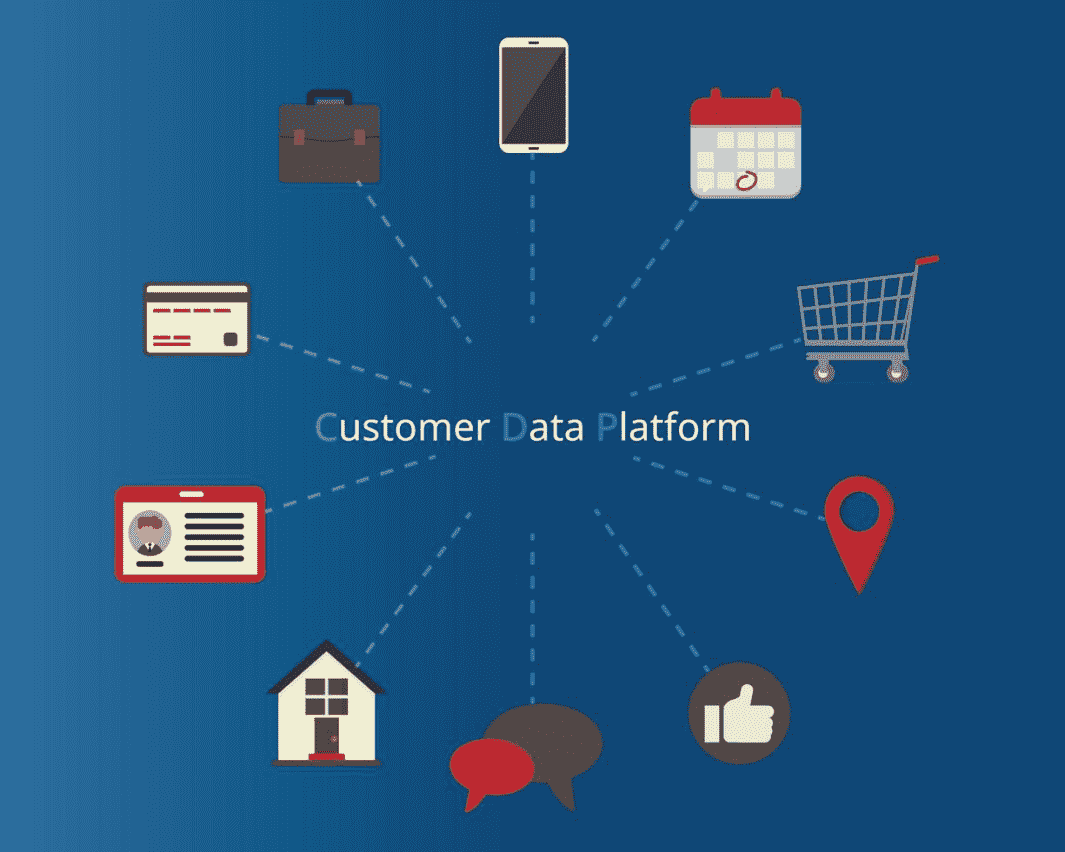
Source: Vecteezy
3. Marketing Automation
A modern customer engagement and loyalty software has multiple AI-powered features to automate marketing workflows. These features can help you build marketing and engagement campaigns from scratch within minutes.

For example, a drag-and-drop journey builder (such as the one in EngageLab) can help you design customer journeys and automate engagement triggers to handle interactions starting from the very first message to conversion.
4. Customer Service and Support
Customer service and support have always been an integral part of customer engagement solutions. The modern tools streamline these processes via help-desks, live chat, self-service portals, and automated services like AI-powered live chatbots.
5. Analytics and Reporting
Data is the currency of the customer engagement software market. The best customer engagement software is the one that offers advanced analytics with easy-to-understand reporting. They also offer insights to help you optimize your marketing and engagement campaigns and get better results.
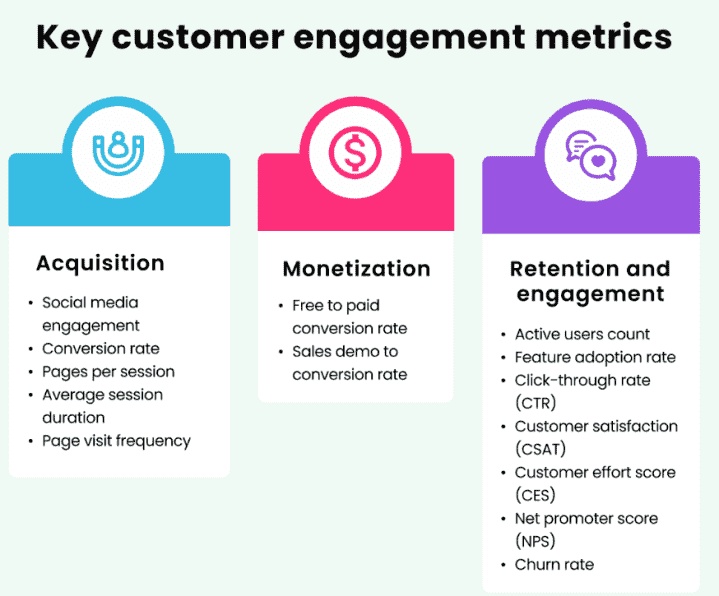
6. Artificial Intelligence and Automation
AI-powered features are becoming essential in the customer engagement software market. These features include predictive analytics, churn prediction, content generation, and campaign timing optimization. AI and automation ultimately help in greater efficiency and personalization.
7. Personalization & Journey Management
This module deals with end-to-end customer journey design and personalizing it on the basis of the collected customer data. This is a must-have feature, as providing a personalized experience can help you win over the target audience and keep them coming back.
All of these features and modules combine to make a reliable, efficient, and user-friendly customer engagement platform that can take your business to new heights of success.
Quick Facts: Navigating the Customer Engagement Software Market
The core functional modules we discussed in the previous section are not limited to any one particular customer engagement solution.
Many customer engagement software vendors provide these features in the form of different solutions targeted for different industries and businesses of different sizes.
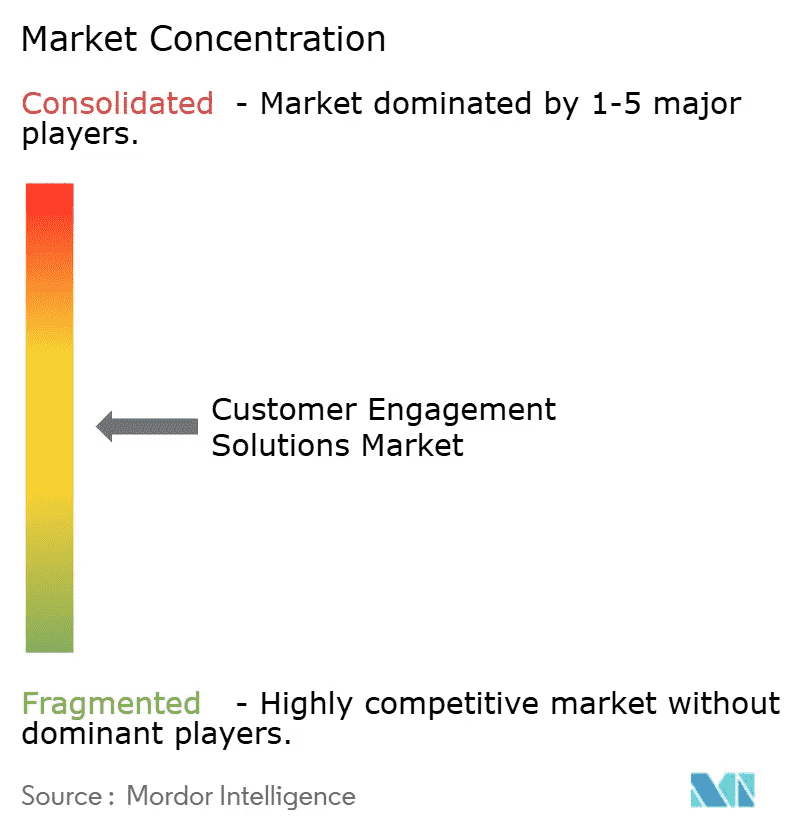
Source: Mordorintelligence
So, let's navigate the customer engagement software market in detail by looking at some of the best customer engagement platforms available for different niches:
Giant Integrated Platforms
Salesforce Service Cloud
Salesforce Service Cloud is the enterprise customer engagement solution. It offers extensive customization capabilities and multiple integration options with the larger Salesforce ecosystem. Moreover, the platform has advanced features like case management, omnichannel routing, Einstein Analytics (for AI-powered insights), and broad third-party integrations to extend its capabilities.

Pricing:
- Starter Suite: $25/user/month
- Pro Suite: $100/user/month
- Enterprise: $175/user/month
- Unlimited: $350/user/month
- Agentforce 1 Service: $550/user/month
| Pros | Cons |
|---|---|
| A unified and comprehensive suite for CRM, marketing, and service management. | Expensive, which means small businesses cannot use this tool |
| Advanced automation and analytics capabilities | Complex setup, which also increases implementation and training time |
| Many third-party integration options are available to help you extend the functionalities | Requires significant implementation time |
Freshworks Customer Engagement Suite
Freshworks is another enterprise-level customer engagement platform, but with fewer complexities. It supports the unification of sales, marketing, and support-related workflows in the same dashboard. Moreover, the platform focuses on user-friendliness and quick deployment.
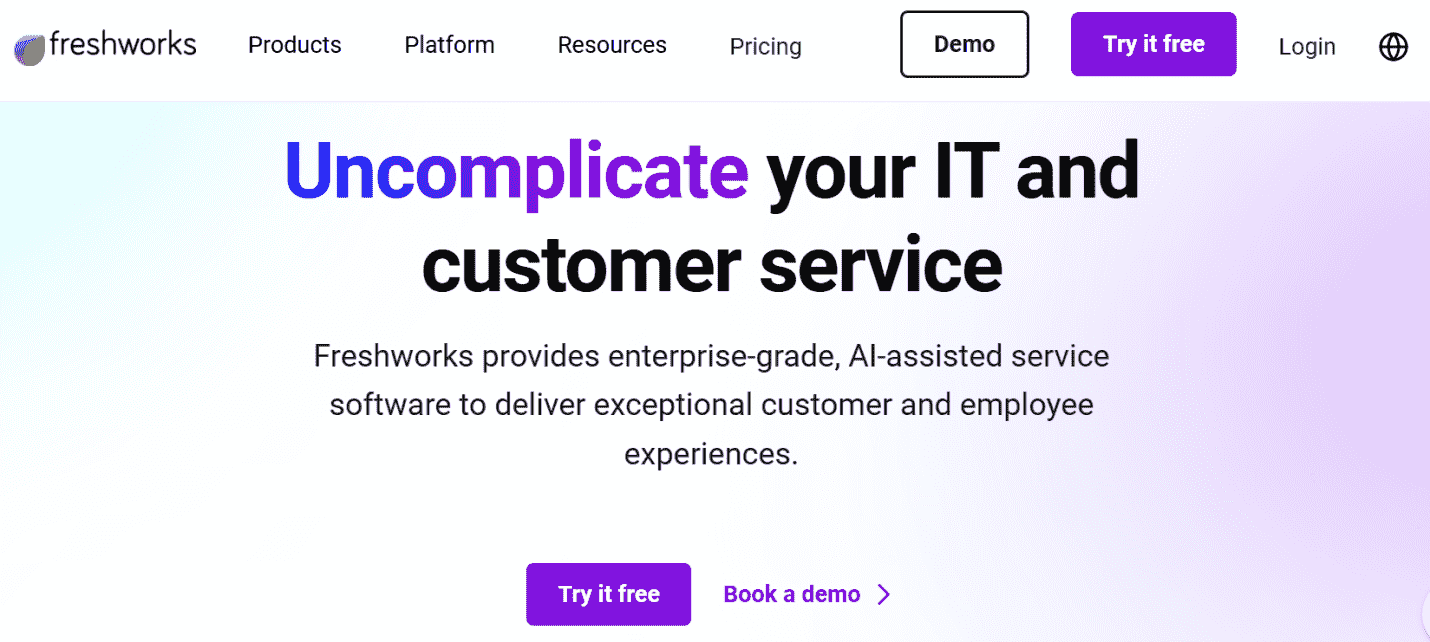
Pricing:
- Growth: $15/agent/month
- Pro: $49/agent/month
- Pro + AI Copilot: $78/agent/month
- Enterprise: $79/agent/month
| Pros | Cons |
|---|---|
| Simple interface with easy onboarding | Limited analytics |
| Affordable pricing compared to other enterprise customer engagement software. | Some integrations require paid tiers |
| A complete engagement solution to handle key workflows of marketing, sales, and support. | / |
Segment-Specific Leaders
Intercom
Intercom is a prominent name among the conversational customer software vendors. It is a great option to handle chat-based interactions and overall customer communication workflows. Moreover, many SaaS companies and digital businesses rely on this solution, giving it significant credibility.

Pricing:
Intercom has multiple pricing plans ranging from $39/per/month to $139/seat/month. It also has a usage-based pricing option.
| Pros | Cons |
|---|---|
| Capable of handling real-time customer communication | Costly for a larger team |
| Powerful chatbot workflows | Limited omnichannel capabilities |
| Highly user-friendly interface | Reporting is relatively basic. |
Zendesk
Zendesk is a leading name in customer service and support solutions. Its ticketing system is quite well-known among businesses. Moreover, its features like knowledge base management, multi-channel support, and integration options make it a reliable customer engagement software.

Pricing:
- Support Team: $19/agent/month
- Suite Team: $55/agent/month
- Suite Professional: $115/agent/month
- Suite Enterprise: $169/agent/month
| Pros | Cons |
|---|---|
| Fast and responsive customer support and ticketing capabilities. | Limited customer engagement automation options. |
| Supports scaling customer service. | Customization options are limited, especially for larger businesses. |
| Quick and easy integration with CRM and communication tools. | Lack of flexibility in the reporting dashboard. |
Emerging/Specialized Customer Engagement Software Companies
Bettermode
Bettermode is a community-driven customer engagement software. It has multiple features to build branded customer communities, forums, and knowledge base sections. This solution overall has a unique approach to building deeper customer relationships via peer-to-peer interactions and community building.
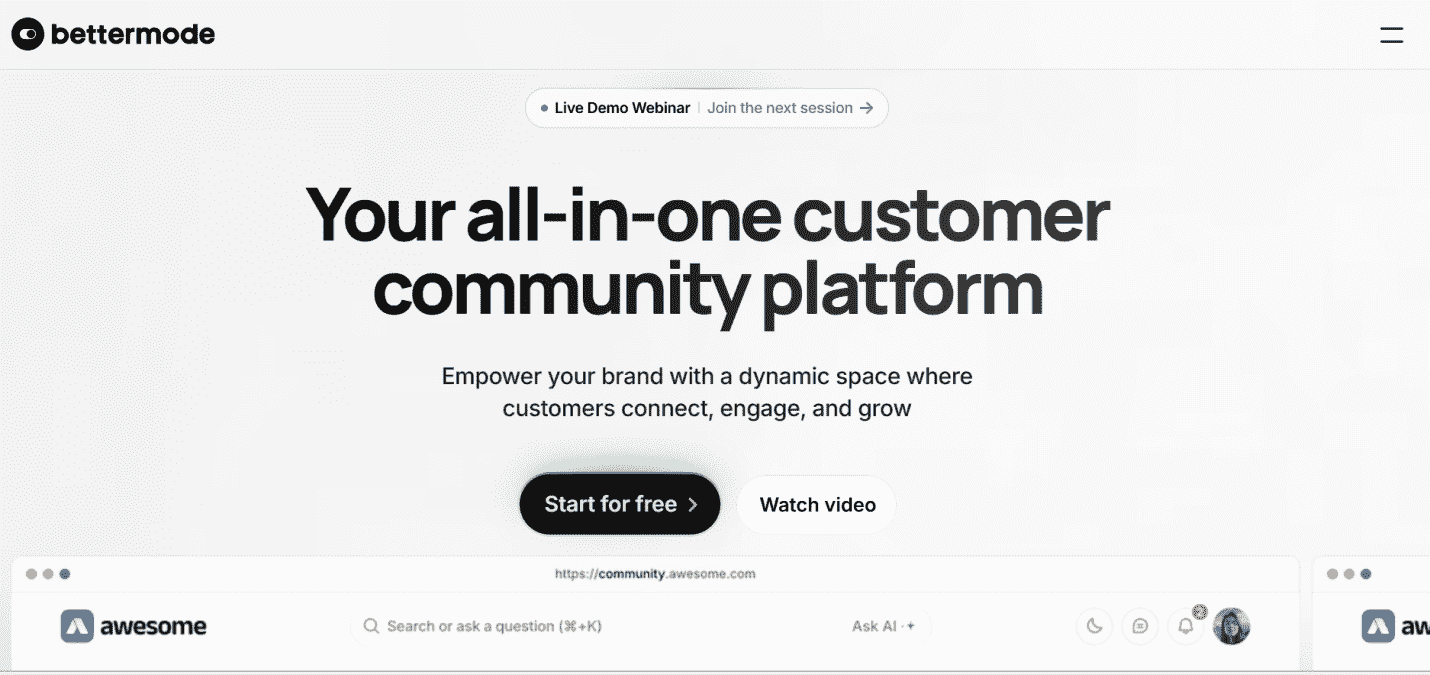
Pricing:
- Starter: $0/month
- Pro: $59/month
- Enterprise: Custom pricing
| Pros | Cons |
|---|---|
| Promotes community-driven engagement | Does not offer full omnichannel customer engagement features. |
| Offers customer self-service and peer-to-peer interaction. | Less suitable for marketing-driven engagement. |
| Limited analytics and automation. |
EngageLab
EngageLab is an emerging name in customer engagement and loyalty software. It offers AI-driven personalization at scale, omnichannel customer journey orchestration, and predictive customer analytics. Moreover, the platform supports businesses of all types and sizes via a usage-based pricing model to ensure everyone can maximize customer lifetime value through omnichannel engagement strategies.
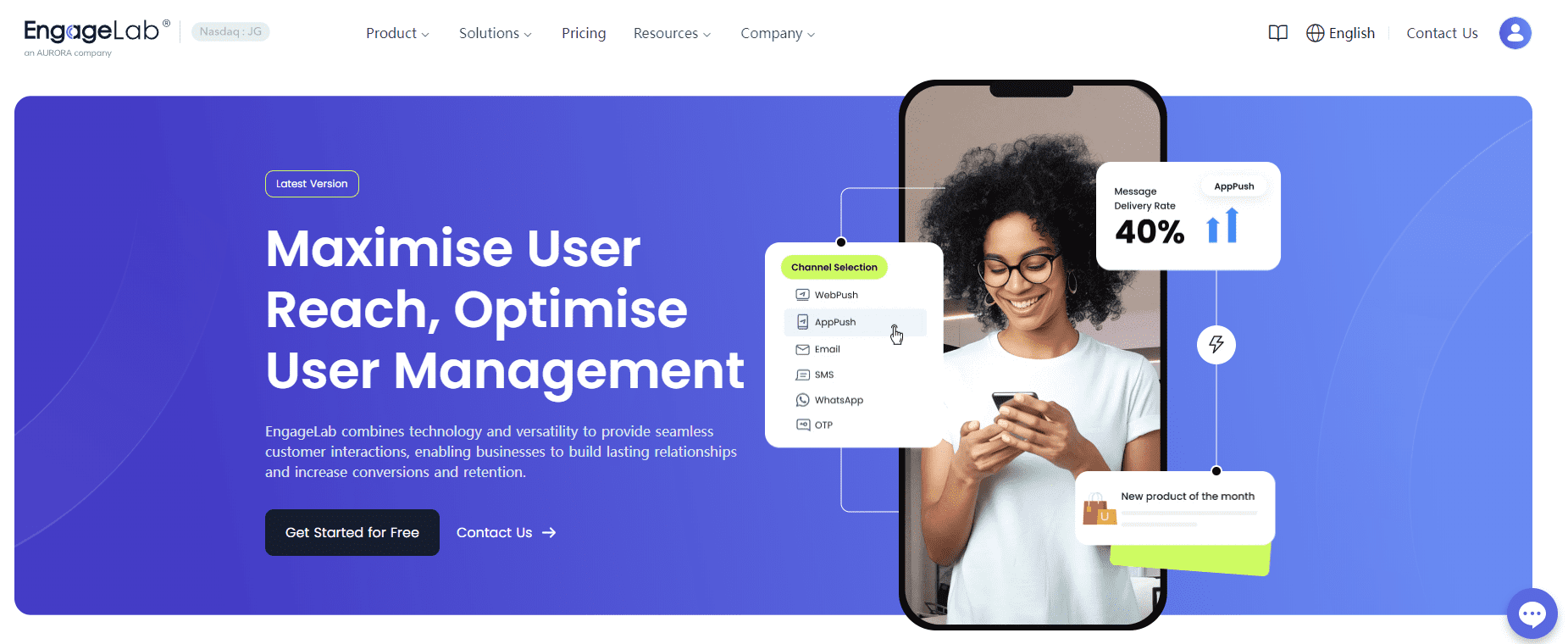
Pricing:
EngageLab has a usage-pricing model, which is quite affordable compared to other customer engagement solutions discussed before. You can calculate the exact pricing by entering your requirements in EngageLab's pricing page.
-
Offers omnichannel communication across email, push, SMS, and WhatsApp.
-
An emerging name compared to enterprise giants like Salesforce.
-
High deliverability rates with strong performance.
-
High deliverability rates with strong performance.
-
Multiple advanced features to support AI-driven automation, personalization, and journey management.
-
Smaller community than legacy customer engagement software.
-
Scalable infrastructure with global coverage.
A Guide to Choosing Your Best Customer Engagement Software
Let's explore how exactly you can pick the best customer engagement software, along with our top picks for different industries.
First of all, you have to consider the following criterion:
- Define Your Business Needs and Objectives: You should have a clear idea about your core engagement goals, such as to reduce churn, increase repurchase rate, or improve onboarding. Similarly, narrow down the channels that matter the most to your customers and the maturity level of your current engagement strategies.
- Evaluate Budget and Resources: Consider your budget and key costs, such as customer engagement software subscription fees, implementation costs, and team training costs. Also, determine the impact of any potential downtime and data migration.
- Assess Integration Capability: Make sure the customer engagement platform of your choice can integrate with your current workflow. Ideally, you should pick a tool that supports extensive API and SDKs integration and is flexible enough to support advanced features.
- Check Scalability: Determine whether the platform can handle your current customer engagement requirements, along with the potential to grow with your business. Moreover, it should support global operations and have strong regulatory compliance to reach a broader audience.
- Emphasize Ease of Use and Employee Experience: The interface should be intuitive to cut down onboarding and training time. It will also help marketers in building journeys quickly and provide an impressive customer experience.
- Request Demos and Free Trials: You should always test the customer engagement platform of your choice in a real environment before making any long-term commitment. Evaluate the overall interface and features like reliability, latency, and delivery rates during this time.
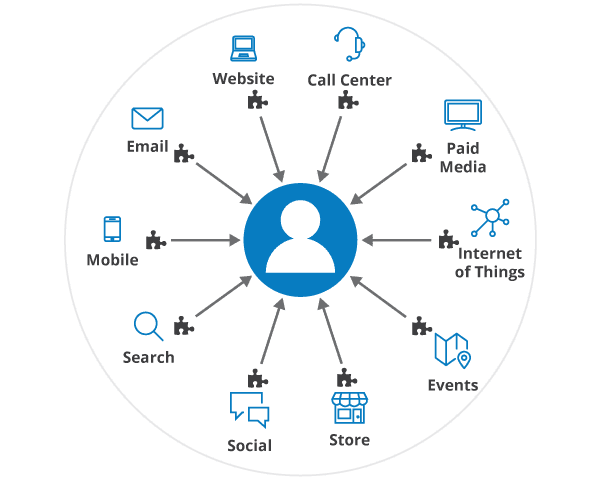
Source:smarketingcloud
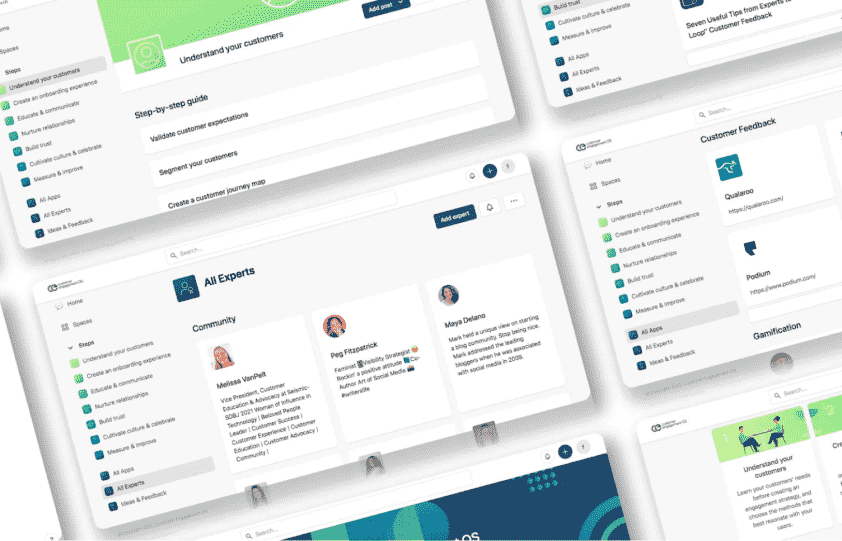
Based on the above factors, here are our industry, here are our industry-specific recommendations to pick the best customer engagement software:
| Industry / Use Case | Recommended Platform (Example) |
|---|---|
| SaaS / Tech / Product-led Growth | Intercom, EngageLab |
| Retail & E-Commerce (global scale) | EngageLab, Salesforce Service Cloud |
| Financial services (high compliance) | Salesforce Service Cloud, EngageLab |
| Mid-market service organization | Zendesk, Freshworks Customer Engagement Suite |
| Community / user-generated content brand | Bettermode |
Why We Recommend EngageLab in the Evolving Customer Engagement Software Landscape
The customer engagement software industry is rapidly evolving with the changing nature of businesses and the advancements of AI.
Future Trends in Customer Engagement and Loyalty Software
Some of the key trends emerging in customer engagement and loyalty software are:
- Deep Integration of AI & Automation: AI-powered personalization in terms of content, timing, and channel optimization has already become the norm. More AI features like predictive insights (who will churn, who will buy), and automation at scale will become critical for a business's success.
- Hyper-Personalization: Personalization now is not simply limited to writing the customer's name. Now, dynamically tailored offers, channels, and even micro-moment engagement based on behavior and context are going to become vital to win over the customers.
- Balance of Privacy & Data: Platforms have to deliver highly personalized experiences while respecting regulations like GDPR and rising consumer sensitivity.
- Omnichannel: More and more legacy customer engagement solutions are also embracing omnichannel communications because customers expect consistency.
- Advanced Analytics: Engagement is only meaningful if you are able to measure its impact and use analytics to increase it over time. Hence, platforms now must deliver advanced analytics, such as revenue attribution and churn forecasts in real-time.
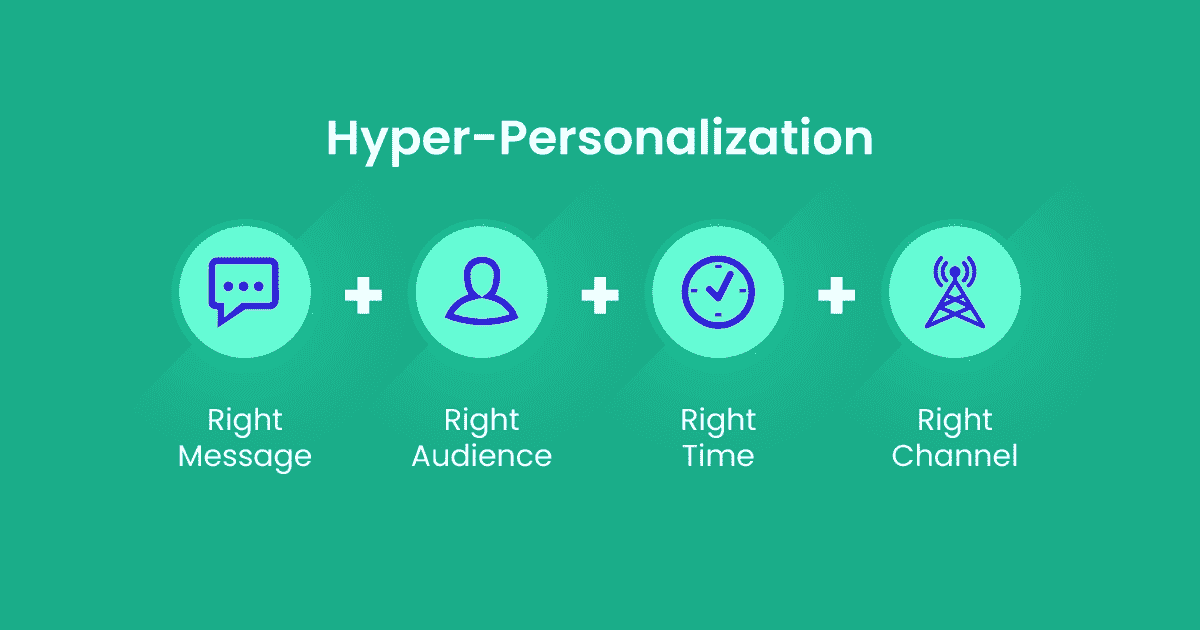
Source: Dexatel
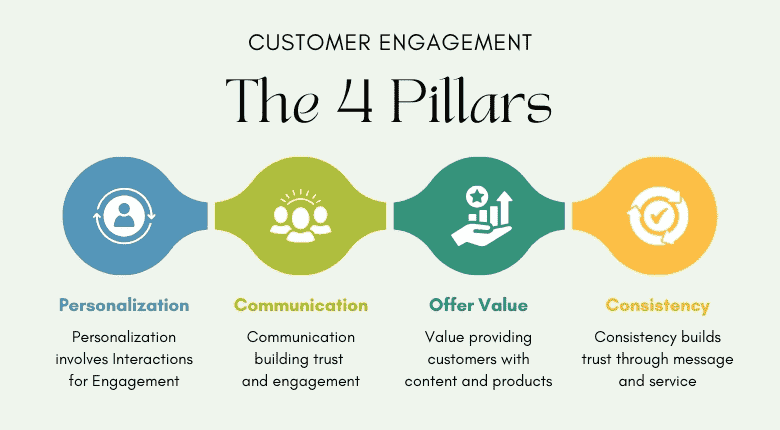
Source: Wisernotify
Our Top Pick for Best Customer Engagement Software
After this entire discussion, our top pick for the best customer engagement software is EngageLab because it offers these features and advantages:
- Unified, omnichannel platform: EngageLab supports customer engagement via email, AppPush, WebPush, SMS, and WhatsApp to ensure consistent communication.
- High deliverability & performance: Multi-channel and multi-day nodes capability of EngageLab ensures high deliverability of all marketing and engagement messages.
- AI-powered automation & personalization: Journey orchestration becomes quick, easy, and efficient via visual journey builder, drag-and-drop workflows, and AI content creation.
- Global infrastructure: Businesses can deliver their messages across the world with EngageLab as it supports multi-data nodes, multi-time-zone, multilingual support, and maximum compliance to data regulations (GDPR/DPPA).
- Integration & scalability: Advanced APIs and SDKs integration options support quick setup and handling of large messaging capacity.

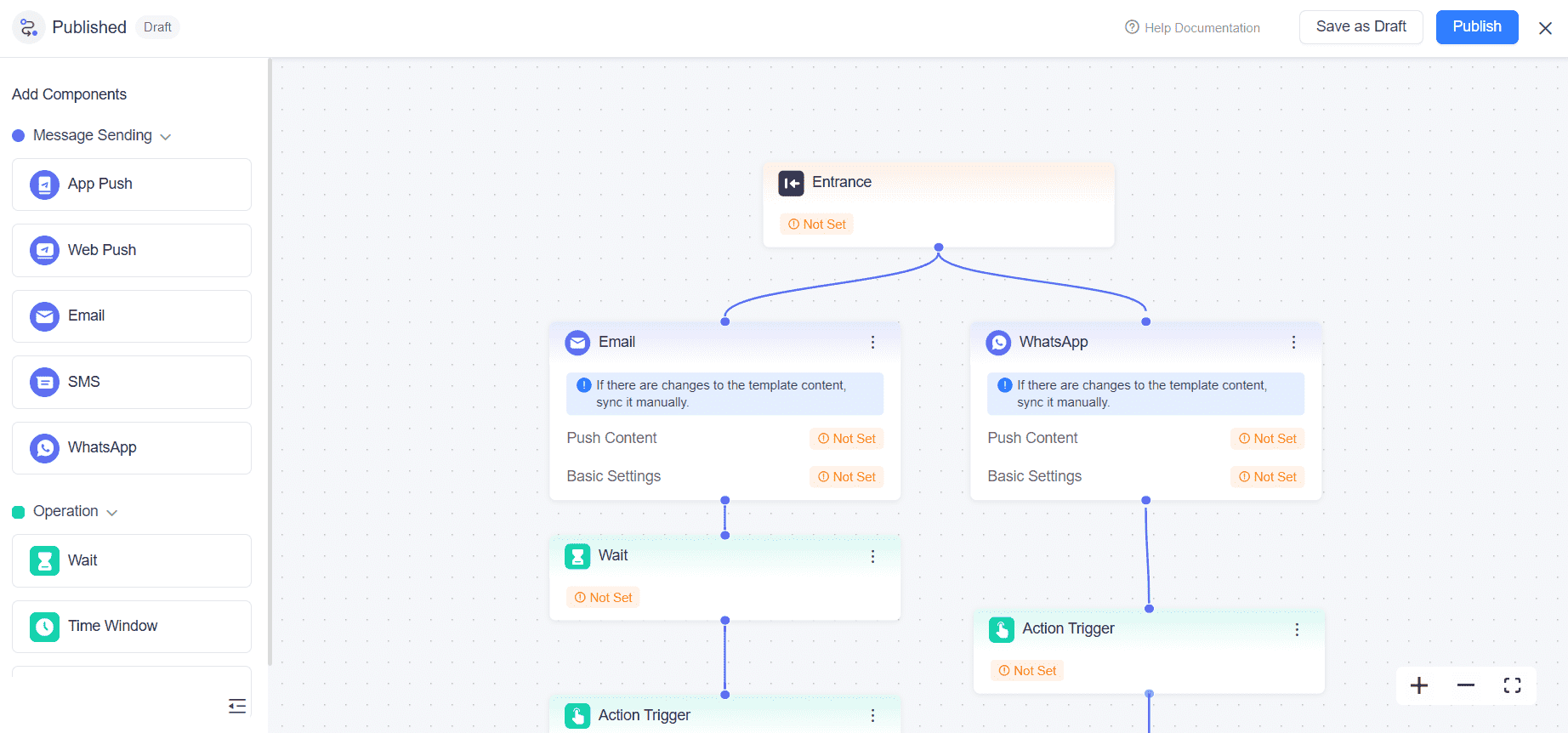
Investing in the right customer engagement platform is the key to surviving in a highly competitive marketplace and winning over your customers. If you are looking for a solution that can help you with personalization at scale and reach a global audience via multiple channels, you should definitely consider EngageLab as your top choice.




